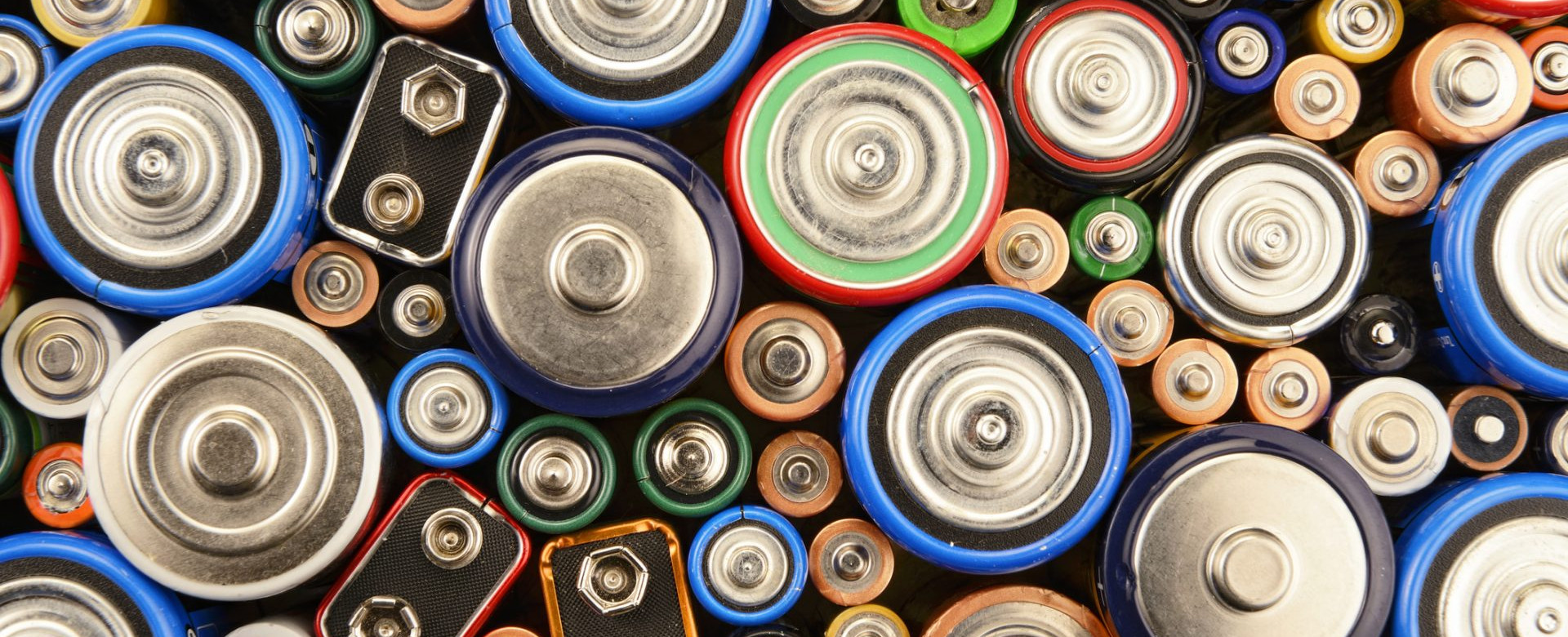
The Future of Data: Sebastiaan Meijs, Operations Director MIREC
Rockfeather wants to put ambitious people who are using innovative technology to achieve their business goals in the spotlight. The first person we had the opportunity to interview for this series is Sebastiaan Meijs. Sebastiaan is Operations Director at MIREC, a leading electronics recycler. Are you curious about Sebastiaan's career and personal motivations? And what role data science plays in his daily work? Then read on quickly!
Q: What work experience did you have before starting in the recycling business?
A: After completing the Royal Military Academy and a Master’s in Management Science, I was a logistics officer for 9 years. Within these years I was also deployed to Afghanistan 2 times. This was an incredibly beautiful time, because there you learn to achieve a goal with a team under difficult circumstances.
Q: Cool! And how did you end up in the recycling business from there?
A: I left Defence because I had children and didn’t want us to miss each other. So I ended up at Voestalpine where I learned everything about production within the automotive as Shift Manager Assembly. After 2 years I got by chance the opportunity to work at HKS as Supply Chain Manager of HKS Amersfoort. After a year, I became location manager and 4 years later I was responsible for the complete supply chain of all 12 HKS locations. Since 2 months I am Operational Director at MIREC, but I am still closely involved with HKS. For example, I am still helping with the integration of the various business units and giving strategic direction to the further development of the supply chain.
Q: An interesting combination of management, logistics and production! Does this come into its own within recycling?
A: Definitely, because without a good supply chain, you don’t have optimal production. You want everything to run as smoothly as possible and remove bottlenecks from the process. And so I used to do that at plant level and now I get to do that from a helicopter view at group level. I support the branches so that they join forces more and help each other where necessary.
Q: In your current position, do you notice that leadership is easier because you have a background in Defence?
A: People always have the image of Defence that you always show directive leadership, but that only happens when you are under fire and no discussion is possible. Of course, it is true that military people are naturally clear and direct. In business, you often see that people within a company are good at something and therefore advance to a leadership role. Military people, on the other hand, are actually trained in leadership. They are not into politics and are straightforward; something that is often appreciated in the manufacturing world!
Q: What skills and lessons from Defence do you still use in your daily work?
A: Within Defence you learn very well what it is like to be a role model. As director, I can tell people to stick to certain rules, but if I don’t do that myself, it won’t come across. From this role model position it is also important that I show commitment. Not to check up on employees, but purely out of interest. In addition, military personnel always have a plan A, B and C. By always having structured backup plans, I don’t easily get surprised in my daily work.
Q: What is a big difference between Defence and the work you do now?
A: In Defense, it was mainly about effectiveness and less about efficiency. You had to achieve your goals regardless of the financial cost. In business, you are constantly steering for costs and trying to get the maximum results with the lowest possible costs.
Q: You are now working as the director of operations at MIREC. What makes MIREC distinctive?
A: What makes MIREC a leader is the recycling grade we achieve. We can recycle the material in such a way that as much as possible can be reused and the most value creation is realized. And that’s mainly in continuous innovation. For example, you can continue to disassemble everything by hand, but we are increasingly looking at applications that allow us to recycle more quickly and cheaply in a safe way. At the end of the day, you just have to make money and achieve your goals.
Q: What developments are going on in the recycling industry?
A: We live more and more in a throwaway culture. People always want the latest things and often consider price more important than quality. As a result, we are getting more and more products. At the same time, manufacturers are producing more and more cheaply and complexly, so the stuff we get in is less recyclable.
Q: And what developments do you expect?
A: I expect legislation to set increasingly higher standards for recycling and for the materials that producers use. When it is stipulated that producers must use recycled material, the problem is tackled at source. This is positive for the environment, but also for our company. Because the more demand there is for recycled material from producers, the more sales we have and the more the circular economy becomes a reality.
Q: How do you think automated separation will develop within recycling?
A: Machines are faster and better at separating materials than people, due to sensors. In addition, a machine can perform an operation 24 hours a day with consistently the same quality. Something that is simply not possible for a human. So in recycling we are striving to move more and more towards separation by machines. And in addition, of course, it would be great if these machines could continue to optimize themselves and communicate with each other.
Q: Do you think there will be more use of data to increase efficiency?
A: We are now working with Power BI, because it allows you to visualize your figures, compare things quickly and see if you are going in the right direction. It is also a complex issue to determine how best to manage our supply flows. It is ideal that you can use data to allow the computer to determine which variables can be used to reach the optimum. These are great developments, that you can use data, and especially predictive data, to steer your processes.
Q: Do you think predictive maintenance could also be something for the recycling industry?
A: Absolutely! We are currently already doing temperature monitoring of certain machine parts, so that we can estimate when they will wear out and need to be replaced. We also replace certain parts of products during major overhauls because then we know what service lives they have. Because we can predict this, we prevent the major downtime of machines. But in the area of predictive maintenance we still have a lot of work to do. At the moment it is still more preventive and corrective maintenance.
Q: In terms of business, what is your dream for MIREC?
A: To become a market leader in the business! Ultimately you want to achieve figures that people are happy with, no accidents, continue to innovate and be a trendsetter in the field of recycling with maximum recycling rates. In addition, it is very important to me that people enjoy working here.
Q: What are you personally most proud of from your career?
A: Within Defence, deployment is really the champions league for military personnel. You train for years for it and then when you succeed, it gives you an enormous kick! I am also really proud of the fact that I continue to grow in my development. It’s hard work and it doesn’t come easy, but I love improving things within a company and making an impact. And now I get to do that! Within MIREC I see many opportunities to make big leaps forward in recycling and value generation. I see my job as one big candy store and every day I have another one to grab!
Q: What is a wise lesson you would like to pass along to readers?
A: Just be yourself. And find something that you really enjoy doing, because only then can you fully commit to it and grow the most in it!
Q: For the next interview in this series, we will be speaking to someone from Van Tilburg-Bastianen Groep B.V. What would you like to ask this entrepreneur?
A: What will your business model look like in 10 years with the electrification of means of transport and the development of autonomous driving? I am curious about that!
Webinar: Predictive Maintenance
We will soon be hosting another webinar around the topic of data science. This time we will be working with predictive maintenance.
In our 30-minute webinar on October 21, Rockfeather will showcase how you can build a predictive maintenance model in Alteryx – no coding, Data Science or statistics experience necessary. Click here for more information or sign up directly below.
Predictive Maintenance Webinar
Want to learn how you can build a predictive maintenance model in Alteryx – no coding, data science, or statistics experience necessary? On October 21 we will show you this and more in our 30-minute webinar. Sign up below!
Thank you for your registration!
Cases & Solutions
Want to read more cases and solutions? Find them below or click on the button for all cases and solutions.

Dashboards with impact at Brill
Brill Publishers wants to improve its reporting landscape. She opts for a visual impact on the management information. The new reporting tool provides insight into trends via dashboards. This saves time, quickly brings various information together, and appeals to the imagination.

Low Code - Sustainability App
In the last five years, sustainable development has become one of the essential pillars of organizations. Despite that, lots of organizations seem to struggle with implementing, measuring, and managing sustainable development. Together with leading organizations, we developed a straightforward app-platform with the sole purpose of making implementing, measuring, and managing sustainable development goals easier.